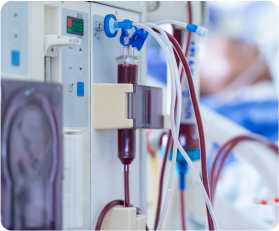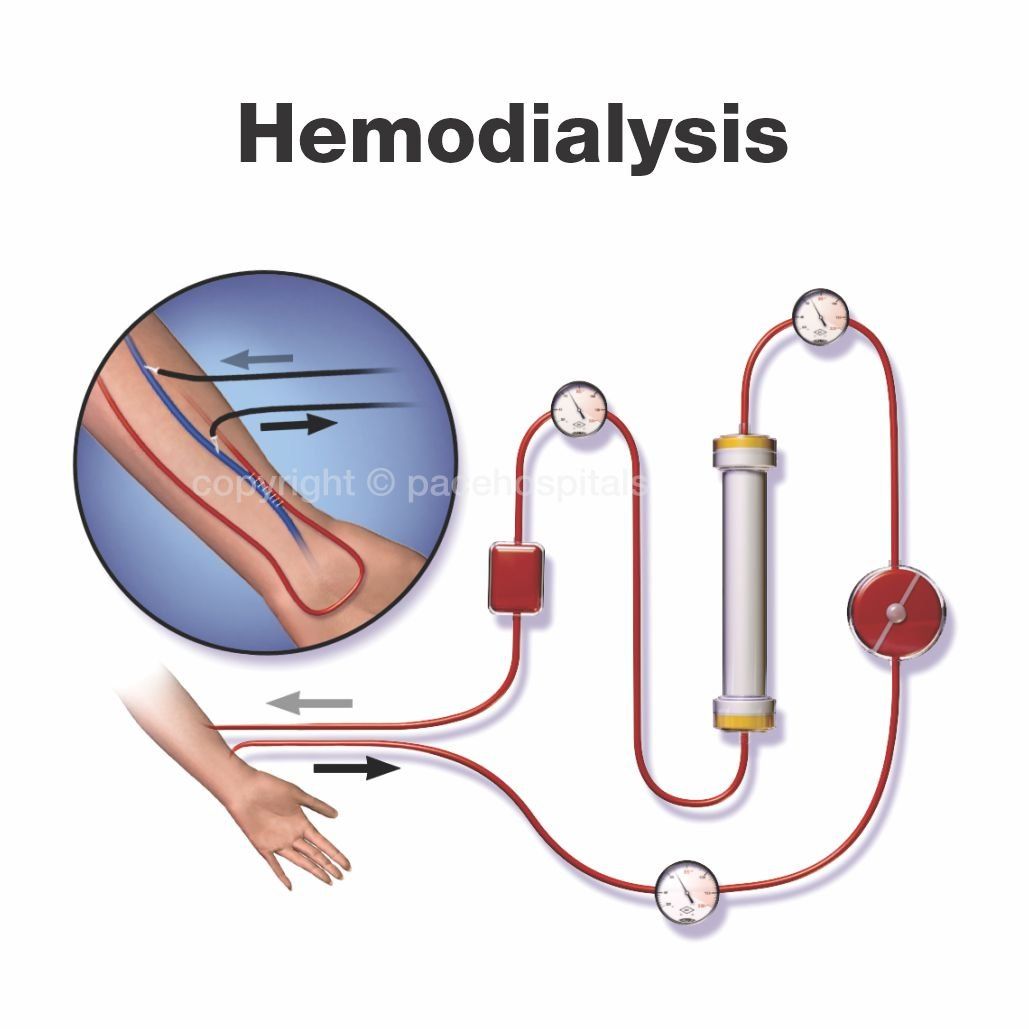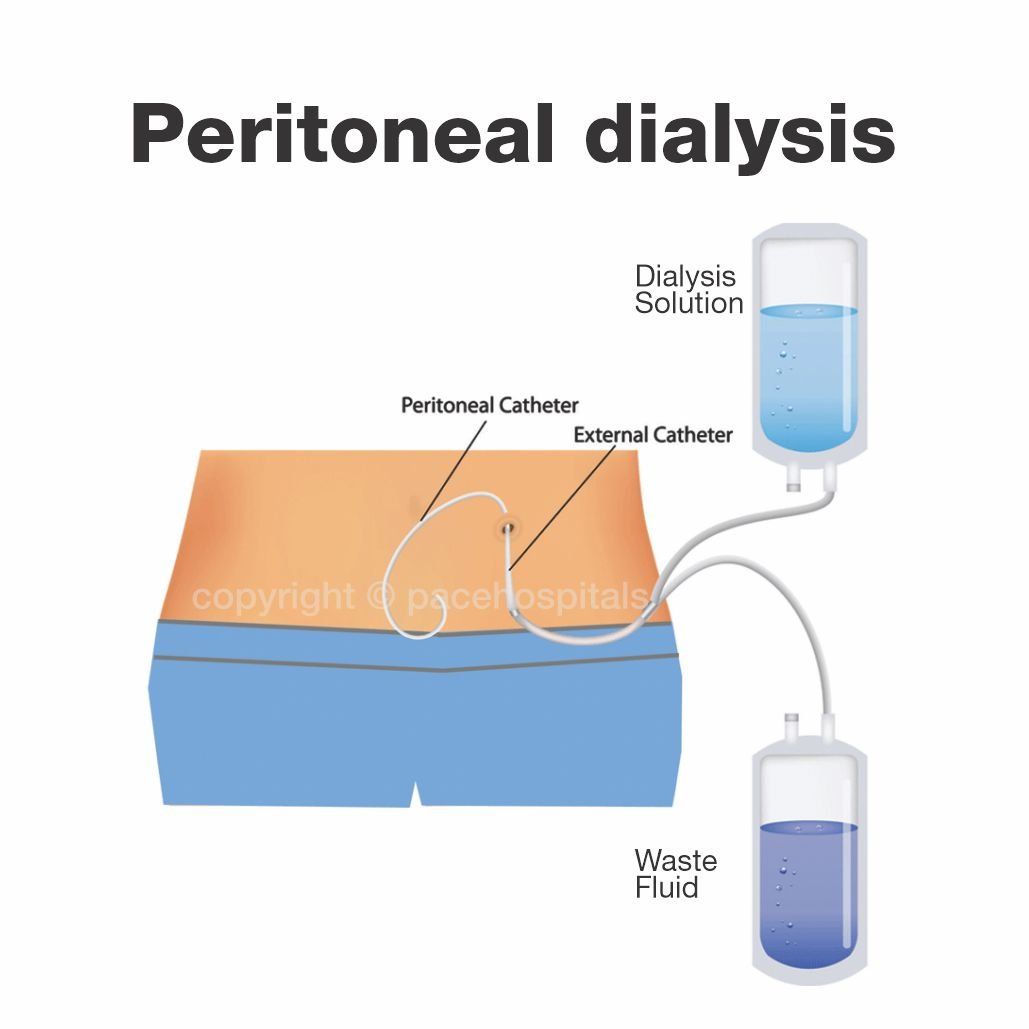किडनी रोग के उपचार के लिए सर्वश्रेष्ठ डायलिसिस केंद्र
पेस हॉस्पिटल हैदराबाद में सर्वश्रेष्ठ डायलिसिस सेंटर में से एक है जो किडनी से संबंधित बीमारियों और स्थितियों वाले रोगियों के लिए निदान, उपचार और देखभाल प्रदान करता है। हमने उन रोगियों का सफलतापूर्वक इलाज किया है जो तीव्र किडनी रोग से लेकर किडनी की पथरी और दुर्लभ किडनी विकारों तक की समस्याओं से जूझ रहे हैं जो अंततः क्रोनिक किडनी रोग का कारण बन सकते हैं।
के लिए अपॉइंटमेंट का अनुरोध करें डायलिसिस उपचार
डायलिसिस अपॉइंटमेंट पूछताछ
पेस हॉस्पिटल - हैदराबाद में सर्वश्रेष्ठ डायलिसिस केंद्रों में से एक
अनुभवी किडनी डॉक्टरों और कुशल मेडिकल स्टाफ द्वारा समर्थित अत्याधुनिक बुनियादी ढांचे और सुविधाओं के साथ व्यापक किडनी देखभाल
हमारे पास गुर्दे की बीमारियों और अन्य समस्याओं से पीड़ित मरीजों की मदद के लिए एक उन्नत डायलिसिस इकाई है। पेस हॉस्पिटल्स का डायलिसिस केंद्र निम्नलिखित से संबंधित सेवाएं प्रदान करता है हीमोडायलिसिस, पेरिटोनियल डायलिसिस (पीडी), होम पीडी, निरंतर साइक्लिंग पेरीटोनियल डायलिसिस (सीसीपीडी), निरंतर एम्बुलेटरी पेरीटोनियल डायलिसिस (सीएपीडी) के लिए प्रशिक्षण और सहायता सेवाएं।
हमारी टीम को उन्नत किडनी रोगों और स्थितियों के उपचार में विशेषज्ञता प्राप्त है, और रोगी के साथ उनकी संपूर्ण भलाई सुनिश्चित करने और स्थिति के आधार पर सर्वोत्तम उपलब्ध विकल्प प्रदान करने में महत्वपूर्ण भूमिका निभाते हैं। मरीजों का निदान और उपचार शीर्ष गुणवत्ता के हैं, और वे हमेशा किसी भी रोगी को उनकी स्थिति की जटिलता के बावजूद हैदराबाद में सर्वोत्तम संभव डायलिसिस उपचार प्रदान करने के लिए सहज बनाने की कोशिश करते हैं।

हमारे नेफ्रोलॉजिस्ट से निःशुल्क वीडियो परामर्श प्राप्त करें
केवल डायलिसिस पर रहने वाले मरीजों के लिए लागू
पेस हॉस्पिटल हैदराबाद में सर्वश्रेष्ठ डायलिसिस अस्पतालों में से एक है, जिसमें नेफ्रोलॉजिस्ट (चिकित्सा पहलुओं के माध्यम से गुर्दे की बीमारियों के इलाज में विशेषज्ञ चिकित्सक, लेकिन सर्जरी नहीं), नर्स, प्रमाणित हेमोडायलिसिस तकनीशियन, आहार विशेषज्ञ और अन्य सहायक चिकित्सा कर्मचारियों सहित कुशल चिकित्सा कर्मचारियों की एक टीम है।
हमारा लक्ष्य डायलिसिस सहायता की आवश्यकता वाले किडनी रोग से पीड़ित रोगियों के लिए समग्र स्वास्थ्य और जीवन की गुणवत्ता को बनाए रखना और सुधारना है। हम रोगी की देखभाल की गुणवत्ता को मापने और सुधारने तथा अपने गुणवत्ता मानकों को बनाए रखने के लिए रोगी की संतुष्टि और नैदानिक संकेतकों की निरंतर निगरानी करते हैं।
डायलिसिस के प्रकार क्या हैं?
गुर्दे हमारे शरीर के लिए कई महत्वपूर्ण कार्य करते हैं जैसे कि अपशिष्ट उत्पादों और मूत्र के रूप में अतिरिक्त पानी को निकालना। वे रक्तचाप को नियंत्रित करने, हड्डियों को स्वस्थ रखने और लाल रक्त कोशिकाओं को बनाने में भी मदद करते हैं। यदि किडनी की बीमारी गंभीर हो जाती है और शरीर को बनाए रखने के लिए गुर्दे ठीक से काम नहीं कर रहे हैं, तो आपको डायलिसिस या किडनी ट्रांसप्लांट की आवश्यकता होती है।
डायलिसिस एक उपचार है जो किडनी के कुछ कार्यों जैसे फिल्टर, तथा डायलिसिस मशीन का उपयोग करके आपके शरीर से अपशिष्ट और अतिरिक्त तरल पदार्थ को निकालकर रक्त को शुद्ध करता है। यह प्रक्रिया आपके इलेक्ट्रोलाइट्स और तरल पदार्थों को संतुलित रखने में मदद करती है, जब आपकी किडनी बीमारी या चोट के कारण इन कार्यों को करने में असमर्थ होती है। डायलिसिस के 2 प्रकार हैं, हेमोडायलिसिस और पेरिटोनियल डायलिसिस, रक्त को फ़िल्टर करने के लिए अलग-अलग तरीकों का उपयोग करते हैं।




